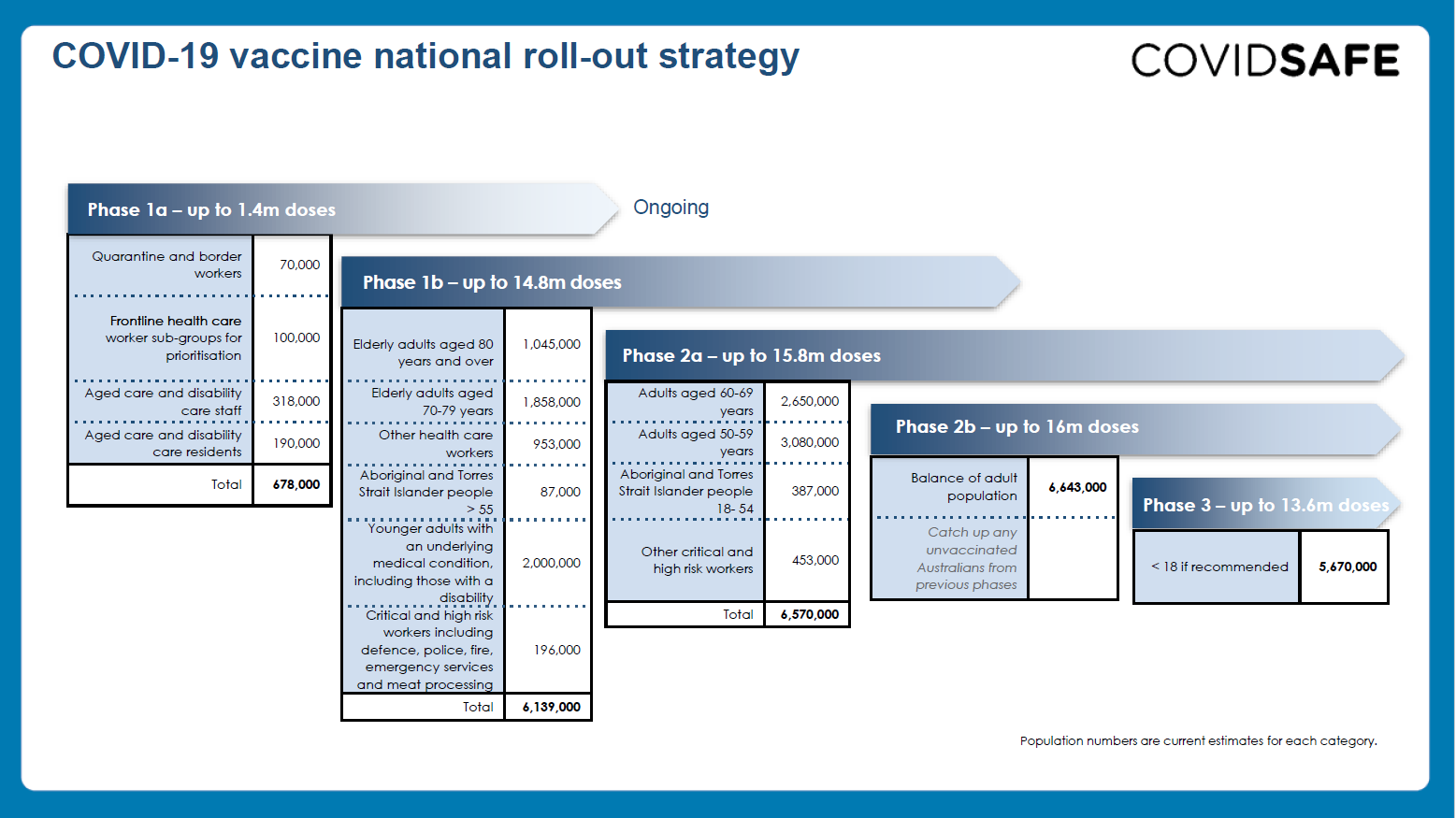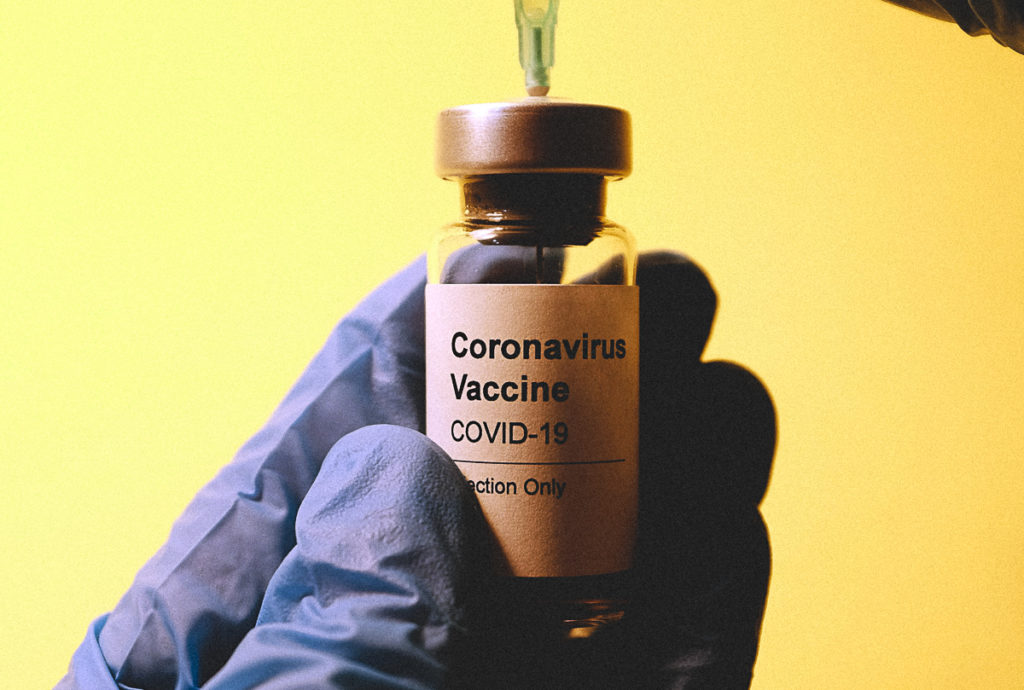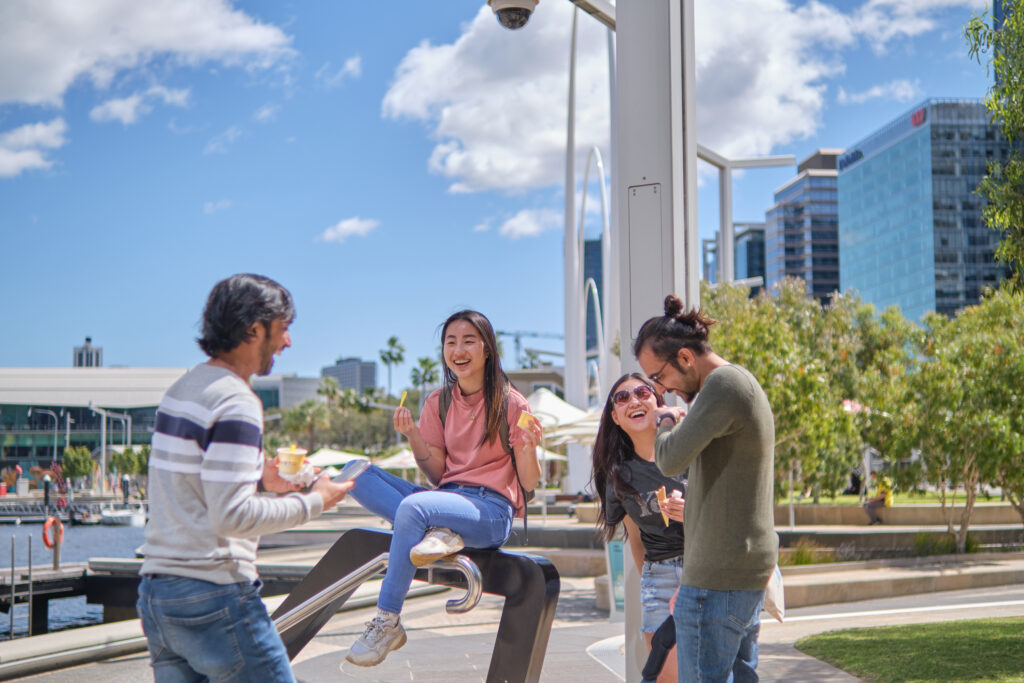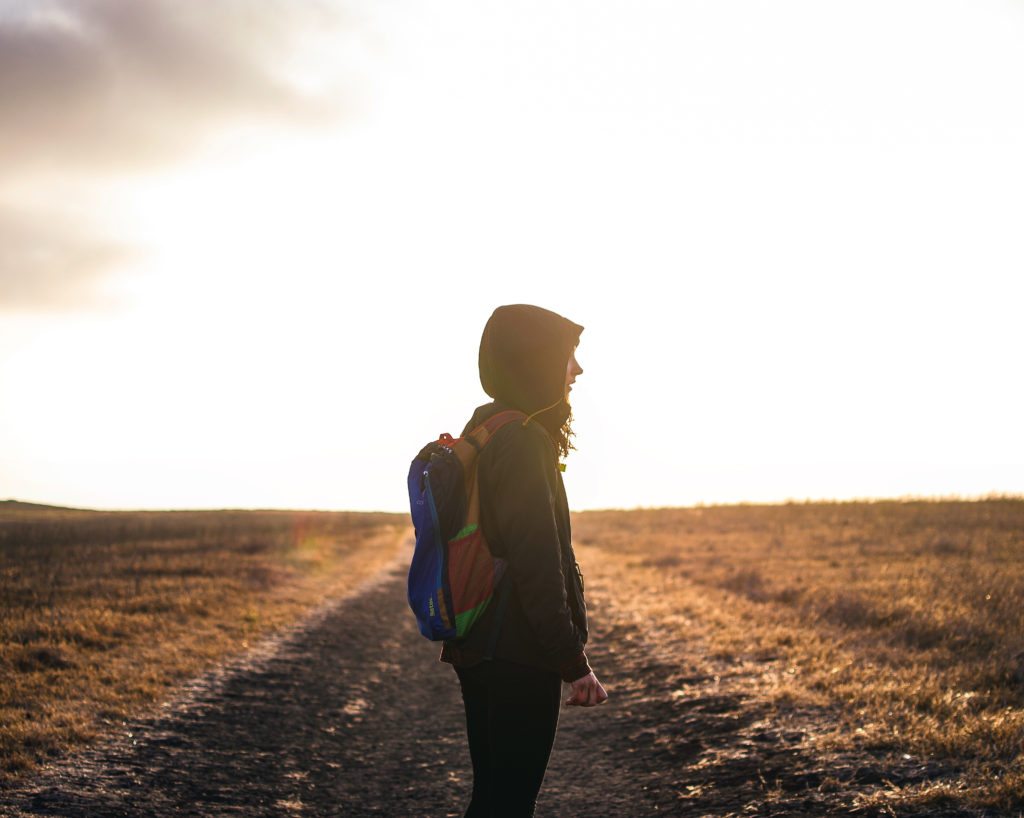After over a year of uncertainty brought on by the COVID-19 pandemic, some relief is in sight as more vaccines are approved for use across the globe. With countries hard-hit by the virus already dispensing vaccines to the population’s most vulnerable, Australia is lining up to do the same, as government officials anticipate the first round of vaccines to be delivered as early as mid-February. Let’s take you through the COVID-19 vaccine information available worldwide, before discussing what we know about the vaccine in Australia.
What are the different COVID-19 vaccines available globally?
There are currently a range of different COVID-19 vaccine trials underway across the globe, meaning more vaccines are being announced regularly. At present, here are the vaccines most common in the news and important to us in Australia.
Pfizer-BioNTech
Efficacy: 95%
Dose: 2 doses, 3 weeks apart
The first COVID-19 vaccine to get emergency authorisation in the United States, and it has received the green light in many other countries.
Moderna
Efficacy: 94.5%
Dose: 2 doses, 4 weeks apart
Developed in the US, with most of its production committed to the US, plus some shipments to go to European countries, as stated in The Guardian.
AstraZeneca
Efficacy: 62-90%, depending on dose
Dose: 2 doses, 4 weeks apart
This vaccine (also known as the Oxford-AustraZeneca vaccine) has had extensive use already, being dispensed in Britain, India and several other countries. According to the New York Times, this vaccine is cheap and easily stored, raising hopes that it could protect most of the world. Research is still underway on what dosage gives the most effective protection.
Johnson & Johnson
Efficacy: Unknown
Dose: 1 dose
This vaccine is expected to release results from its late-stage clinical trial in coming weeks. According to CNN, the vaccine has shown promising results from its early-stage trials and could have a big impact on the pace of vaccine delivery in the US because it is given in a single dose instead of two.
Novavax
Efficacy: Unknown
Dose: 2 doses, 3 weeks apart
Made in the US, this vaccine underwent early-stage trials in Australia and the UK, according to The Conversation. The company plans to distribute its vaccine to 1 billion people with deals with the US, UK, Canada and New Zealand, as well as manufacturing and distribution deals with collaborators in India, Japan and South Korea.
Which COVID-19 vaccines will we get in Australia?
The Federal Government has entered into four separate agreements for the supply of COVID-19 vaccines, which will be delivered once each vaccine is proven to be safe and effective.
Pfizer
The Pfizer-BioNtech drug is expected to be the first COVID-19 vaccine to pass the Therapeutic Goods Administration’s (TGA) approval process in Australia. The Federal Government has secured 10 million doses and will be the first to be administered in early phases of the Australian COVID-19 vaccine roll-out strategy.
AstraZeneca
The AustraZeneca vaccine will be the most widely available vaccine in Australia once approved by the TGA. Once approved, early access to 3.8 million doses of the AustraZeneca vaccine will be available for Australians, followed by 50 million vaccines manufactured in Melbourne.
Novavax
Upon approval, Novavax is predicted to be available in Australia in the first half of 2021, with Australia expected to receive 51 million doses.
COVAX Facility
Australia is one of 188 countries that have joined the COVAX Facility in a global effort to provide rapid and easy access to COVID-19 vaccines. Participation allows countries to purchase doses as they become available, giving access to a diverse selection of potential vaccines.
When will international students in Australia get the COVID-19 vaccine?
With all vaccines yet to be approved by the Therapeutic Goods Administration and limited information outside of the COVID-19 vaccine national roll-out strategy, it is unclear when international students will receive the vaccine.
 (Source: Australian Government)
(Source: Australian Government)
The Federal Government has announced the first vaccines will be available during mid to late February, as part of Phase 1a. This phase will dispense the Pfizer vaccine to a group of 678,000 people, including quarantine and border workers, frontline health workers, plus aged and disability staff and residents.
Phase 1b follows and is expected to cover 6.1 million people including everyone over 70 years old, other healthcare workers, young adults with an underlying condition and high-risk workers like emergency workers and meat processing workers. Aboriginal and Torres Strait Islander people over the age of 55 are also included.
Phase 2a covers Aboriginal and Torres Strait Islander people who are between 18-54, along with Australians over 50 years old and other critical high-risk workers.
Phase 2b is the rest of the adult population, plus anyone from the previous phases that have been missed out. It is expected that most international students will fall into this phase, with the exception of those studying and working in healthcare and those with underlying conditions, who should be prioritised in an earlier phase.
Phase 3, the final phase, will be for children but only “if recommended” given the evidence that they don’t transmit the disease like adults.
Will the vaccine be covered by my OSHC?
As the COVID-19 vaccines are still in the approval process with the Therapeutic Goods Administration, there is little information available publicly regarding OSHC and the vaccine. It is advised that you contact your provider directly to check. For more details on how OSHC providers across Australia are responding to COVID-19 and their contact information, click here (note: article correct at time of publication).
Is the vaccine free?
According to the Australian COVID-19 Vaccination Policy, the COVID-19 vaccination will be free for all visa-holders, excluding visa sub-classes 771 (Transit), 600 (Tourist stream), 651 (eVisitor) and 601 (Electronic Travel Authority). Given the majority of international students living in Australia hold a subclass 500 (Student Visa), they will be eligible for free vaccinations.
Will I be able to enter Australia without the vaccine?
Nothing official has been released, however according to the BBC, Australian airline Qantas has announced it would be “a necessity” for travellers to be vaccinated before boarding a flight once vaccinations are rolled out. According to The Sydney Morning Herald, the notion of vaccination certificates granting access to overseas travel in the coming months is under question, due to the numerous vaccinations’ varying levels of effectiveness and the potential for vaccinated people to carry disease.
Is the COVID-19 vaccine safe?
Australia has strict requirements for the testing and approval of vaccines. Clinical trials and testing of the vaccine must provide scientific evidence which demonstrates that the benefits of a vaccine greatly outweigh any risks. Before a COVID-19 vaccine is approved for use in Australia, it must pass the Therapeutic Goods Administration’s (TGA) careful assessment and approval processes. This includes assessment of its safety, quality and effectiveness. So, you can be sure that once the vaccine is available for use in Australia, it will be safe. For more information about the COVID-19 vaccines in Australia, click here.





